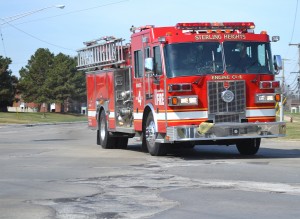Late yesterday afternoon the Senate Republican’s released their road funding plan and immediately voted it out of committee on a party line vote. The plan consists of a mix of new revenue and rededicating General Fund money for a total of approximately $1.5 billion in funding for roads and bridges when fully implemented.
Beginning October 1, 2015, this plan would increase the gas tax by 5 cents. It would increase an additional 5 cents on January 1, 2016 and January 1, 2017, for a total of a 15 cent increase. Tax rates on diesel would be adjusted so they are equal to the tax paid on gas by the end of that three year period. Beginning in 2018 gas and diesel taxes would be tied to inflation. This will generate roughly $820 million in new road dollars that will flow through the full Act 51 funding formula, providing an increase to the Comprehensive Transportation Fund which supports public transportation, rail, and ports. Beginning in 2033 the gas tax would be eliminated.
The plan earmarks $350 million of existing income tax revenue in 2016 and $700 million each year from 2017 to 2032 solely for roads and bridges. These redirected dollars would circumvent the full Act 51 formula, bypassing the Comprehensive Transportation Fund (CTF).
State General Fund spending would be capped at current spending levels and only allowed to grow by the rate of inflation. Any growth over inflation will result in a reduction to the income tax rate by the same amount. There is no identified floor on the rollback so hypothetically income taxes could be rolled all the way back to zero.
Similar to the House plan this proposal would eliminate the Earned Income Tax Credit, require competitive bidding on all MDOT and local road projects over $100,000, require MDOT and local road agencies to secure warranties for projects over $1 million, and allow townships contributing greater than 50% to a road project over $50,000 to require competitive bidding. MDOT must also create a 50 Year Roads Task Force where their goal will be find a way to build roads that last at least 50 years and to be able to build them for half the cost.
The bottom line is that this plan does not provide a long-term sustainable solution to address Michigan’s deteriorating infrastructure. Additional earmarks from the General Fund and only allowing the General Fund to grow by inflation could severely affect the ability of the state to prioritize investment in communities that desperately need it. It could result in future cuts to revenue sharing, K-12, higher education, community colleges, economic development, PILT, fire protection grants, or state police.
We would encourage all of our members to reach out to their State Senator and explain that we are thankful that this proposal has new revenue included but this proposal will severely limit the flexibility of the state’s General Fund. The lack of flexibility could have a long-term negative affect on communities. Please ask that they do not pass this legislation this without significant changes that will protect the state’s ability to invest much needed resources into communities.
John LaMacchia is a Legislative Associate for the League handling transportation, infrastructure, and energy issues. He can be reached at jlamacchia@mml.org or 517-908-0303.


